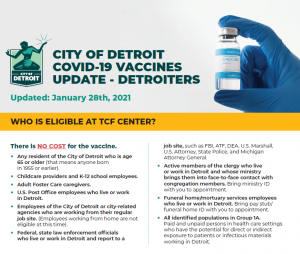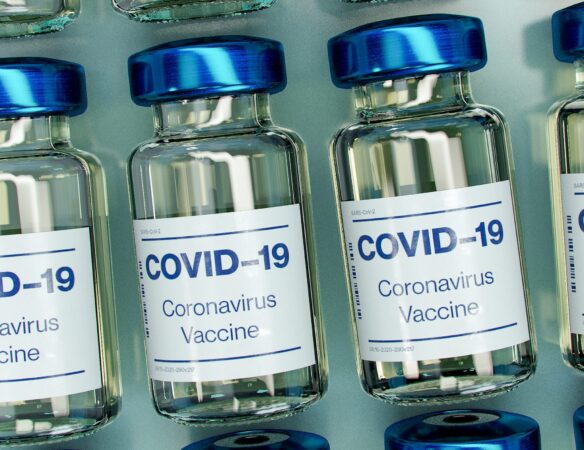As fears of new COVID-19 variants mount, approximately 33 million vaccines have been administered across the United States, about 62 percent of all available doses. As the new Biden administration struggles to allocate vaccines, the President himself urged states to reallocate vaccines that have not been used within a week.
With about 8 percent of the country having received both doses, states have found themselves at the helm of vaccine distribution.
Assessing the situation, experts from Michigan joined public health experts from Illinois, West Virginia, Louisiana, and Colorado for a hearing in DC titled, “No Time to Lose: Solutions to Increase COVID-19 Vaccinations in the States.”
ADMINISTERING VACCINES IN MICHIGAN
Speaking about the efforts underway in Michigan, Dr. Joneigh Khaldun, chief medical executive and chief deputy for health at the Michigan Department of Health and Human Services (MDHHS) testified in front of the Energy and Commerce Oversight and Investigations Subcommittee about the state’s effort for distributing vaccines, needs from the federal government, and the state’s efforts to administer the vaccine without compromising equity.
“Since the emergence of COVID-19 just over a year ago the world has eagerly awaited a vaccine that could help to end this unprecedented pandemic,” Khaldun shared. “Now, with two safe and effective vaccines and additional vaccines on the horizon, Michigan is working to distribute the vaccine quickly, efficiently and equitably to residents across the state. Like many other states, Michigan’s single biggest challenge with the vaccine rollout has been the limited supply of vaccine available week to week and the lack of a national federal strategy until now. Despite this, Michigan has made significant strides in implementing our vaccination strategy.”
“COVID-19 has wrought unimaginable death and destruction throughout the world. In the past 12 months, more than 2 million people have died from COVID-19, including more than 14,600 people in Michigan,” added Khaldun. “However, science has prevailed. We have two safe and effective COVID-19 vaccines available today with another likely coming in the weeks ahead. While these vaccines were developed in less than a year, they were built upon decades of scientific research. To develop a vaccine, rigorously test it and bring it to market in less than a year is an incredible feat that should be celebrated. I am proud of the work of our state and local health departments and health care systems who have worked tirelessly to deliver vaccines while also fighting to bring down the curve. We must ensure every person in America that wants a vaccine can quickly and equitably receive one. We can end this pandemic, but it will require cooperation, hard work, transparency, and dedication from each and every one of us.”

PHOTO FROM THE CITY OF DETROIT.
As of February 1, Michigan has administered a little over 1 million total first and second doses of the Pfizer and Moderna vaccines. As part of the state’s plan to boost the number of vaccines administered, the state is hoping to vaccinate 70 percent of Michiganders age 16 as soon as possible, while ensuring that both vaccines are received within 7 days of each other for at least 95 percent of all those administered.
The state is also working to ensure that there is no disparity in vaccination rates across “racial and ethnic groups or by social vulnerability index” and that nobody has to drive more than 20 minutes to reach a vaccination site.
In Detroit, vaccines are currently being administered to all who are eligible at the TCF center. With changes coming February 2, Mayor Duggan announced eligibility expanded eligibility to a multitude of individuals, including any resident over 65, childcare providers and K-12 school employees, federal and state law enforcement officials who live in or work in Detroit, active clergy members and US post office employees who live or work in Detroit. Under today’s announcement, Duggan added foodservice employees living or working in Detroit, regardless of age, as also eligible for the vaccine.
Information regarding vaccines and eligibility can be found at detroitmi.gov. Be sure to subscribe to our newsletter for the latest on all things Detroit and more.






















